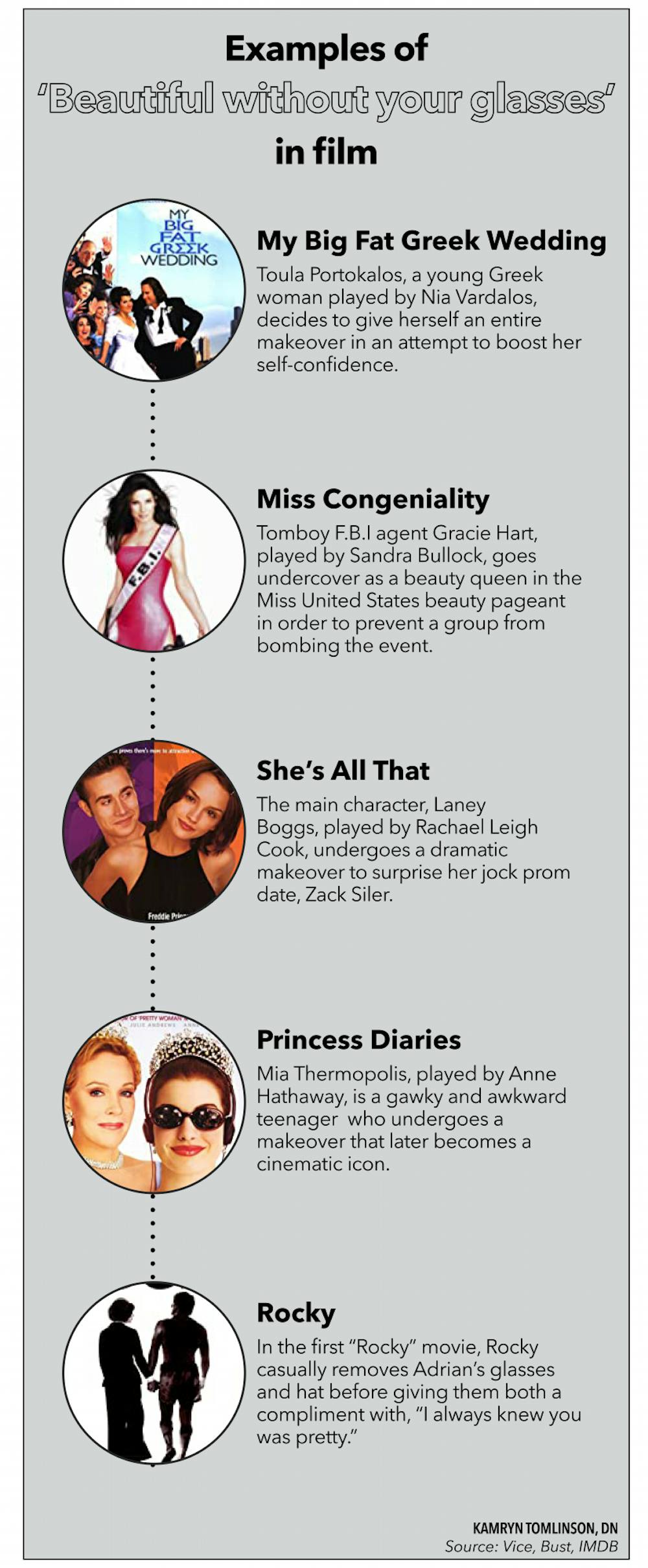
Shwetha Sundarrajan is a senior journalism major and writes “This is the Shwe” for The Daily News. Her views do not necessarily reflect those of the newspaper.
Imagine this: You’re the shy girl sitting in the back of the classroom — silently doodling in the margins of your notebook. No one has ever noticed you, and they never will.
That is, not until those chunky glasses come off.
The teacher calls you to the front of the class to do a math problem, and you find that everything is blurry because your glasses are dirty. As you take them off to clean them, the entire class gasps. Students start murmuring, and tension spikes in your chest. You can’t see anyone’s face because your prescription is so bad.
Why are they whispering? Your mind starts racing as you try to figure out what happened. Is it a stain on your shirt? Is it that pimple that never goes away? Suddenly, a boy blurts out, “The shy girl is hot without her glasses on.”
Record scratch. Freeze frame. “Yep, that’s me.” You’re probably wondering why I’ve brought up one of the iconic scenes in most high school movies. Allow me to explain.
The overdone trope of a woman getting a grand makeover to spark a man’s interest has always been a staple in coming-of-age films, rom-coms and every other genre of film you could think of because, of course, a woman’s discovery of contact lenses or eyeliner is the saving grace for her femininity.
If you take the glasses trope specifically, one could argue it’s ableist. Only those with a lower prescription could fashionably whip off their glasses and be able to walk around without bumping into a table corner every five minutes. If anything, the whole “glasses-make-you-look-ugly” concept sounds like a marketing ploy for contact lenses & LASIK surgery.
So, why can’t glasses be attractive? I mean, if Ben Franklin could rock them, so can anyone else. However, according to the everlasting glasses stereotype, more commonly called the “nerd stereotype,” spectacled people are less attractive and more intelligent than those who don’t wear glasses. Now, you may be thinking, “Is there any reasoning to this stereotype, or are people being judgemental again?”
Eyes are an essential and informative part of the human face, which is why they are commonly called the “windows to the soul.” Because glasses change the way eyes look, it affects and impedes quick discrimination and recognition of faces. However, the type of frames also makes a difference in attractiveness. According to a 2011 study done by University of Vienna psychologist Helmut Leder and his colleagues, those wearing rimless glasses are seen as more attractive because it doesn’t obstruct the eyes as full-framed glasses do. Not to disappoint anyone that’s rocking the full frames, though — your frames make you look more distinctive, intelligent and successful.
Forget the science for a second. The entire trope of spectacled women removing their glasses to become desirable is shallow in itself. In movies such as “The Princess Diaries” and “Miss Congeniality,” the female characters go through a transformation to become more attractive. Prominently, they lose their glasses because who wants the nerdy girl, am I right? These transformative scenes suggest that the smart, capable girl hasn’t fulfilled her role as a woman because she isn’t attractive by conventional means, thus forcing her to go through a completely unnecessary metamorphosis to appeal to the masses in which she’s rewarded with a man finally realizing her beauty and falling in love with her.
Perhaps, it is the man who needs glasses because beauty comes from within, not from the frames.
Contact Shwetha Sundarrajan with comments at ssundarrajan@bsu.edu or on Twitter @fengshwe.




